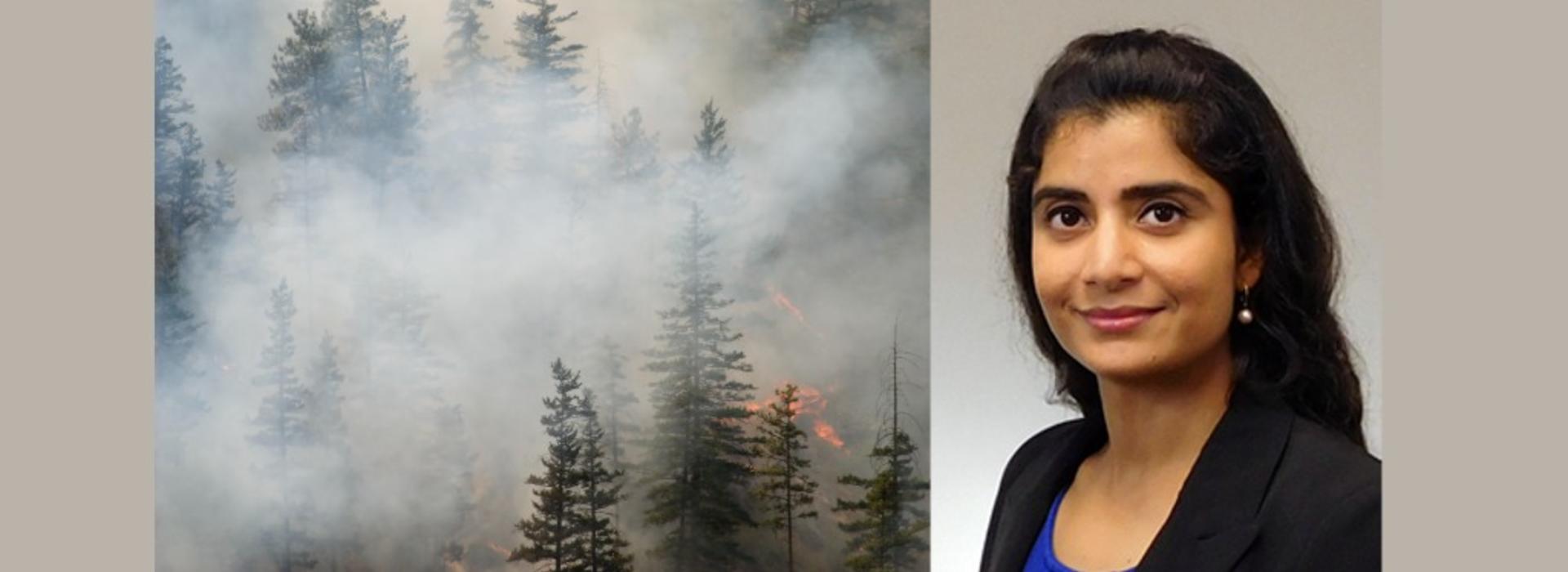
Expert Alert: Health impacts of wildfire smoke
MINNEAPOLIS/ST. PAUL (07/13/2023) — More than 100 million Americans have dealt with poor air quality this summer due to wildfire smoke from Canada. Breathing in the smoke presents health concerns and may result in coughing, stinging eyes and headaches, according to the Centers for Disease Control and Prevention.
Laalitha Surapaneni, MD, MPH, with the University of Minnesota Medical School shares the negative health impacts of wildfire smoke and how you can protect yourself.
Laalitha Surapaneni, MD, MPH
“Wildfire smoke is harmful to all of our health in varying degrees. If you’re healthy, the effects are usually mild and temporary, like a runny nose, itchy eyes, sore throat, cough and headaches. Children and older adults are more likely to be impacted by wildfire smoke. Those who are pregnant are at increased risk for preterm birth. Wildfire smoke is especially harmful for those with chronic lung diseases and heart diseases. If you have asthma or emphysema, this can cause flare ups and trouble breathing that can land you in the hospital. Breathing in heavy smoke is also associated with increased chance of heart attacks, strokes and cardiac arrest. There are also mental health impacts to consider. Watching the sky turn orange or seeing ash fall from the sky can be stressful.”
“There are ways you can protect yourself and your family from the health impacts of wildfire smoke. First, limit time outdoors. On heavy smoke days, consider distance learning and work from home, if that’s an option. Avoid exercise outdoors. If you do have to go outdoors, wear a well-fitting N95 mask. Additionally, create a clean air room in your house. This should be a room with well-sealed windows so smoke cannot get in. Make sure there are no other sources of smoke—like cigarette smoke or incense—in that room either. You may also want to use a high efficiency portable air filter, like a HEPA filter.”
Vishnu Laalitha Surapaneni, MD, MPH, is an assistant professor at the Medical School and a hospitalist at the M Health Fairview University of Minnesota Medical Center. She specializes in climate change and its impact on human health. Dr. Surapaneni works with community organizations to advocate for just climate policies and has provided expert testimony at the Minnesota State Capitol on the public health impacts of climate change.
Follow her @LaaliMD on Twitter for information on how climate change impacts our health and the role health professionals can play in climate action, such as urban greening, access to clean renewable energy and urban cooling centers.
Contact
Laalitha Surapaneni, MD, MPH
Assistant professor at the U of M Medical School
Contact: mednews@umn.edu
Download video interviews and a high resolution photo of Dr. Surapaneni on Reporter Pass.
-30-
About “Expert Alert"
University of Minnesota experts can provide commentary, insights and opinions on various news topics. Find selected experts on UMN’s Experts Guide or send requests to unews@umn.edu.
About the University of Minnesota Medical School
The University of Minnesota Medical School is at the forefront of learning and discovery, transforming medical care and educating the next generation of physicians. Our graduates and faculty produce high-impact biomedical research and advance the practice of medicine. We acknowledge that the U of M Medical School, both the Twin Cities campus and Duluth campus, is located on traditional, ancestral and contemporary lands of the Dakota and the Ojibwe, and scores of other Indigenous people, and we affirm our commitment to tribal communities and their sovereignty as we seek to improve and strengthen our relations with tribal nations. For more information about the U of M Medical School, please visit med.umn.edu.